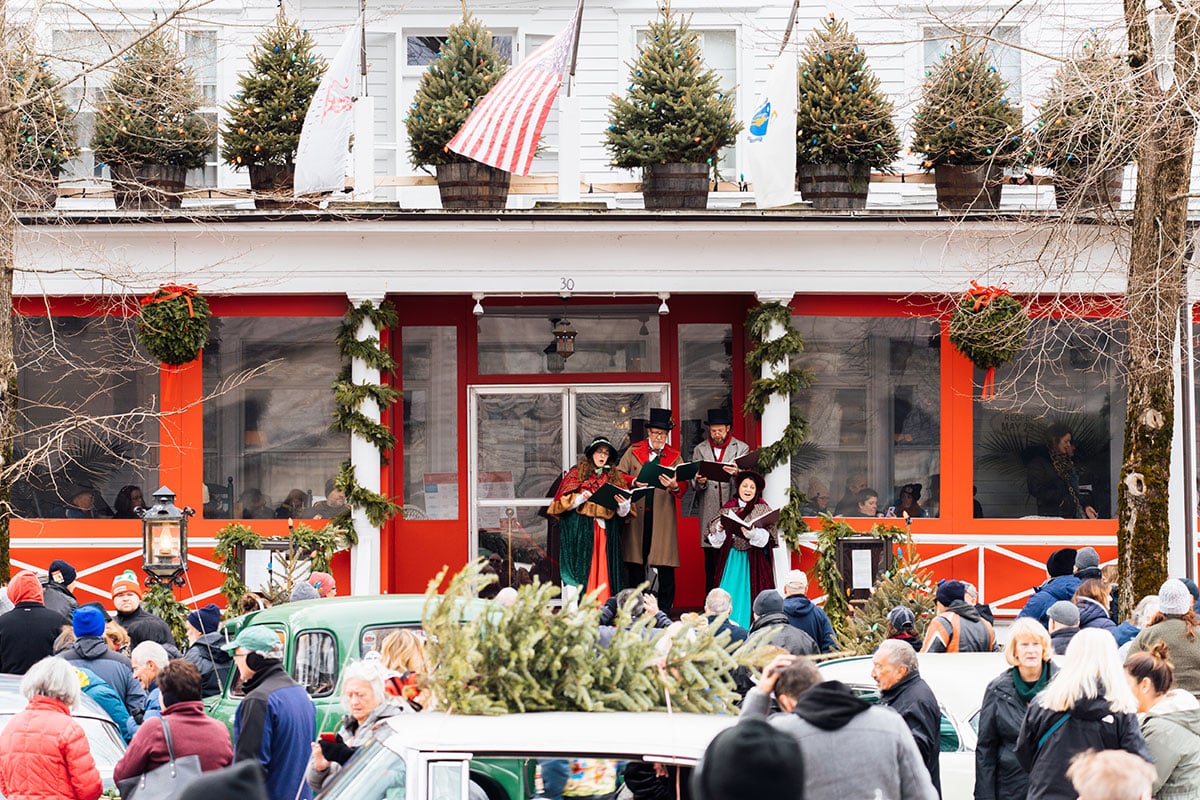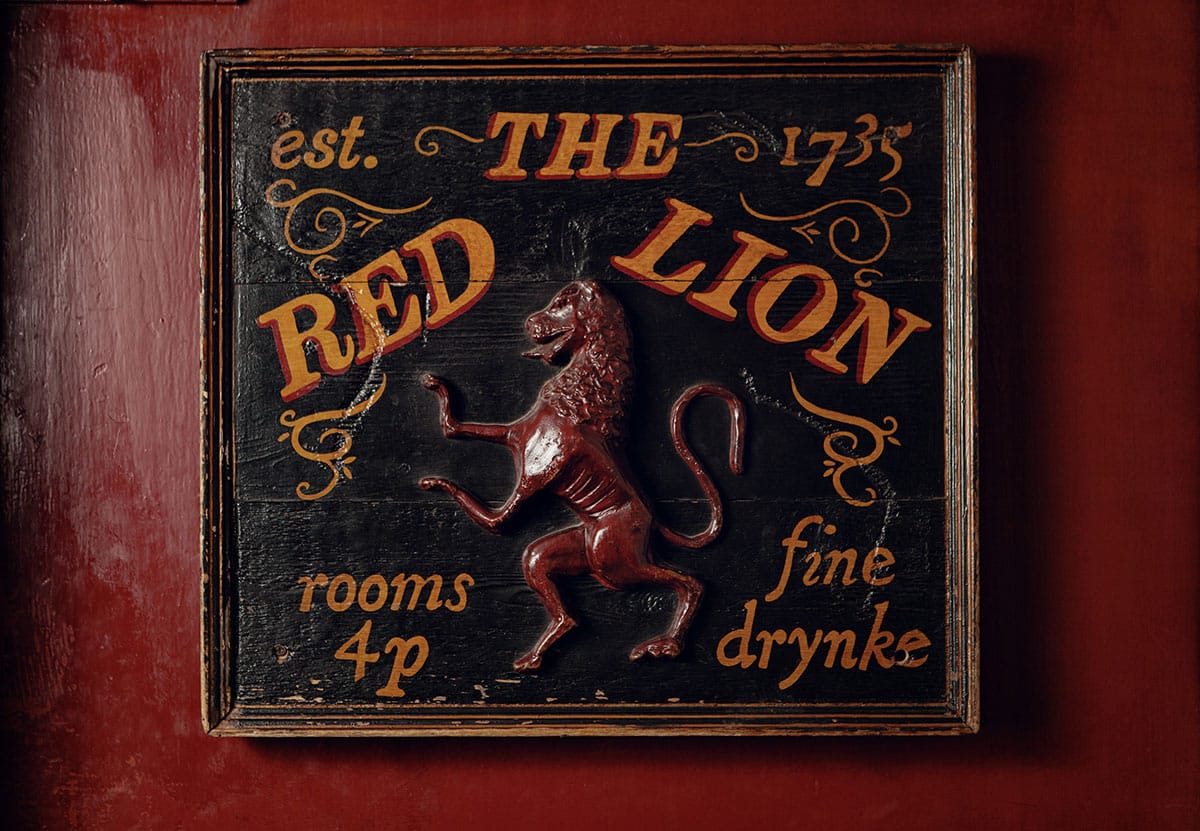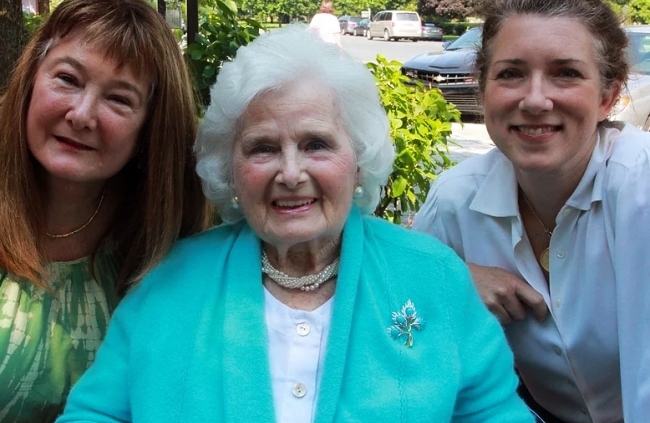A Long Legacy of Female Ownership
This article was originally published in the Berkshire Business Journal in July 2023. Discover the inspiring women who have shaped the legacy of the Red Lion Inn.
From the Binghams to the Plumbs to the Fitzpatricks, The Red Lion Inn’s rich history has been greatly influenced by women
By Tony Dobrowolski
STOCKBRIDGE — The Red Lion Inn has a long and colorful history, as befits one of New England’s quintessential lodging establishments.
But there’s a part of that story that’s often overlooked. It’s the Red Lion’s long legacy of female ownership, which goes back almost as far as the inn itself, whose origins date back to the late 18th century. Ownership considers 1773 as the inn’s founding date, which is why the Red Lion is celebrating its 250th anniversary this year.
This legacy of female ownership starts with Anna Bingham, who founded what became the Red Lion Inn with her husband, Silas, then became the sole owner under unusual circumstances for her time following her husband’s death. She later became the first female litigant to appear in front of the U.S. Supreme Court.
More recently, the Red Lion Inn has been run by three generations of women owners from the Fitzpatrick family, which saved it from the wrecking ball in 1968. The influence of those three, the late Jane Fitzpatrick, her daughter, Nancy, and Nancy’s stepdaughter and current owner Sarah Eustis is visible in the inn’s current operation.
In between the Binghams and the Fitzpatricks there was Mert Plumb, who with her husband, Charles, became the Red Lion Inn’s owners in 1862.
She is remembered mostly for her large collection of Colonial china, pictures, wearing apparel and furniture, which are still among the vintage antiques that can be found in several areas of the lodging establishment. The inn was known as the House of Plumb under their ownership.

The Red Lion in Stockbridge is a cheery place at Christmas when Norman Rockwell’s famous painting of the town during the holidays is celebrated.
Eustis is the president and CEO of Main Street Hospitality, which manages the Red Lion Inn (the inn itself is still owned separately by the Fitzpatrick family). The Fitzpatrick women are a very determined bunch, she said.
“The women in our extended family have always set out to do whatever they wanted to do and have done it,” she said, referring to the Fitzpatrick’s ownership of the Red Lion Inn, “with the support of the men in the family.”
Eustis is well aware of the influence that decades of female ownership have had on the Red Lion Inn through its long history.
“A lot is being discussed right now about how female ownership is unique,” Eustis said. “This is just me just putting my point of view out there, but this place has always been a place for gatherings, for convergence, for family, for feeling cared for and reassured, a place of safety and refuge, a place where the details matter.
“These are all things that as women that we care deeply about and I think that we are naturally good at manifesting,” she said. “Not that men aren’t good at that, too. But, I think that kind of ethos has run through (the inn).
“I think the female leadership of this place has promoted that kind of culture,” she said.
That culture started with Anna Bingham, who by all accounts, was quite different than other women of her time. Born in Watertown in 1745, she moved to the Berkshires with her family at the age of 18. Two years later, she was tried and found guilty of the crime of fornication when she gave birth to a son out of wedlock. (She pleaded guilty and was fined 13 shillings and 4 pence.)
Two months after the trial ended she married her first husband, Thomas Orton Jr., a minister’s son, who helped her raise her baby. It has never been determined if Orton was the father of her child, or what ended that marriage, but in 1773 she married Silas Bingham.
According to articles written by two local historians, Carole Owens of Stockbridge and the late Lion G. Miles, the Binghams did not actually begin operating a tavern on the site that became the Red Lion Inn until 1775 when they moved to Stockbridge.
In his article, “Anna Bingham: From the Red Lion Inn to the Supreme Court,” which is on file at the Stockbridge Library, Miles addresses the confusion with the Red Lion’s Inn’s starting point by stating, “Berkshire County tradition for the past 100 years has assigned 1773 to the founding of the Red Lion Inn.”
The first recorded mention of the inn, known then as Bingham’s Tavern, was a 1778 advertisement in a Connecticut publication, according to Miles. The Binghams continued to run their inn together until 1781 when Silas Bingham died. Anna Bingham was her husband’s natural heir, but in 18th century Massachusetts, property didn’t transfer seamlessly between couples if the husband died.
“There’s a law against a woman having a taverner’s license,” said Owens, who has written about Bingham in her book, Remarkable Women of New England: The War Years 1754 to 1787.
According to Owens, Bingham sent the authorities a letter “begging” them to allow the license to be transferred to her.
“She uses a very persuasive argument for that time in history,” Owens said. “My husband left me a large white house on the corner and he would want me to continue to run it as an inn and tavern.
“Her husband. From the grave!” Owens said. “They’re not going to listen to a request from a woman for God’s sake. Women in the 1770s had no presence in court. They had no rights under the law. Her rights were only her husband’s rights.”
According to Miles, Anna Bingham obtained permission from the Stockbridge Selectman to petition the General Court in Boston to grant her the taverner’s license, but her request was rejected. So she went back to the Selectmen a second time. They agreed to back her again, and Bingham re-petitioned the General Court.
The state agreed to reconsider her case, and on Feb. 23, 1782, empowered two justices of Berkshire County to issue her the license.
“Anna Bingham becomes the first woman certainly in Berkshire County, and as far as I know in Massachusetts, to have a taverner’s license,” Owens said.
According to Miles, Bingham was also the first woman business owner in Berkshire County. A dispute over finances with an entrepreneur from Hudson, N.Y., is what landed her in front of the Supreme Court twice, the second time in 1797, as she sought to overturn a judgment from the Circuit Court that had originally awarded her adversary $5,000, according to Miles. She lost both times.
Bingham continued having financial problems before and after her Supreme Court appearances, which caused her to lose her taverner’s license in 1793 — she actually operated Bingham’s Tavern illegally for a year, according to Miles.
In 1807 she sold what was then an eight-room inn to Silas Pepoon, who had been one of her co-defendants in the case that ended up before the Supreme Court, A string of owners, all male, followed Pepoon, until the Plumbs came along in the mid-19th century. Mert’s vast collection of items changed the inn’s ambience. The inn “became a museum-like repository of antique furniture, crockery, pewter and teapots,” according to one written account.
“This collection of furniture, china, mirrors and other examples of early American household equipment is known far and wide as one of the most complete in the country,” stated a newspaper article published in 1927 that is in The Berkshire Eagle’s archives.

The Red Lion Inn has been around for 250 years, but often overlooked in its rich history
is the lodging establishment’s legacy of female ownership.
“Her teapot collection was extraordinary,”’ Eustis said, “and became the decorative feature at the Red Lion. We’ve retained that and celebrated it. I guess we could give her credit for establishing the foundation for what the inn really looks like and is today.”
Merts Plumb’s collection almost didn’t make it to the 21st century. A fire almost nearly destroyed the inn in 1896, but Mert’s collection was saved by her nephew and future congressman, Allen T. Treadway, and his assistant James H. Punderson, whose daughter Molly was Norman Rockwell’s third wife.
Mert Plumb bequeathed the inn to her nephew in 1916 when she died, 16 years after her husband. The Plumbs were members of the Treadway family that owned the inn for 90 years until the mid-1950s.
After another set of owners failed to make the Red Lion Inn a going concern, the lodging establishment was being considered for demolition when the Fitzpatrick family arrived on the scene in the late 1960s. Jane Fitzpatrick and her husband, Jack, also a future congressman, bought the inn in 1968, partly because they were looking for a site to house Country Curtains, a business that they had recently started.
Although the couple owned the inn jointly, Jane Fitzpatrick was the driving force behind its operation, Eustis said.
“Even though Jack’s name was on the ownership it was really her energy, her influence, her standards for hospitality and detail that re-established the Red Lion Inn and in many ways still spreads through the inn today,” Eustis said.
Nancy Fitzpatrick continued the achievements accomplished by her mother, who died in 2013.
“She was the owner of record,” Eustis said, referring to Nancy Fitzpatrick. “She brought her own leadership style, design sense standards and added another layer on to the whole thing.”
Eustis had worked at the Red Lion Inn growing up, but the decision to succeed her stepmother as owner was not part of a preconceived family plan.
“It could have been that one of my brothers stepped up and said I really want to do this,” she said. “But it wasn’t at that particular point in their career or their lives when they really wanted to do it. So it’s not like there was some strategy around this being a female-led company.
“It just worked out that way,” she said. A modern touch combined with a nod to the past, and stewarded by several generations of women owners is what has made the Red Lion Inn what it is today.
“Nancy always said, ‘It’s hard work to keep things the same,’ “ Eustis said. “We’re staying modern by honoring this incredible history.”




